Using PsycINFO
Step 2: Combining Your Searches
Search Principles in Other Databases
In most library databases—but not PsycINFO!—searching works best if you connect your key terms together using AND and OR to tell the database how to group the terms, and put parentheses around any similar terms. For example:
For more information on combining search terms, watch the Putting a Search Together video.
Search Principles in PsycINFO
In PsycINFO, instead of typing out a search string like the example above, you should combine your initial Subject Heading searches using the search numbers on the left side of the search history.
Here is an example PsycINFO search history. The numbers in the “Results” column show how many matching articles there are for each search.
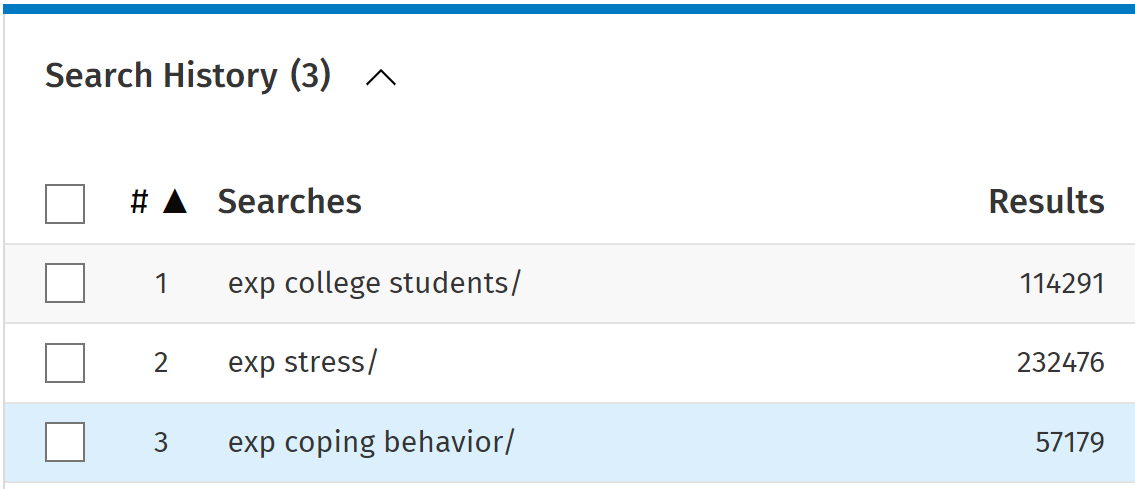
To combine the searches, you can use the numbers given on the left side of the search history and enter them into the Advanced Search box using AND, OR, and parentheses to connect them. Similar searches should be connected with OR and put in parentheses, and searches for different concepts should be connected with AND. Here is an example of how the searches above could be combined:

Once you combine your searches, another line will be added to the search history. The number of results should be much lower than those for your initial Subject Heading searches. For example, the search below shows 757 results when all of the initial Subject Heading searches are combined. PsycINFO has found all of the articles that overlap among the three initial searches.
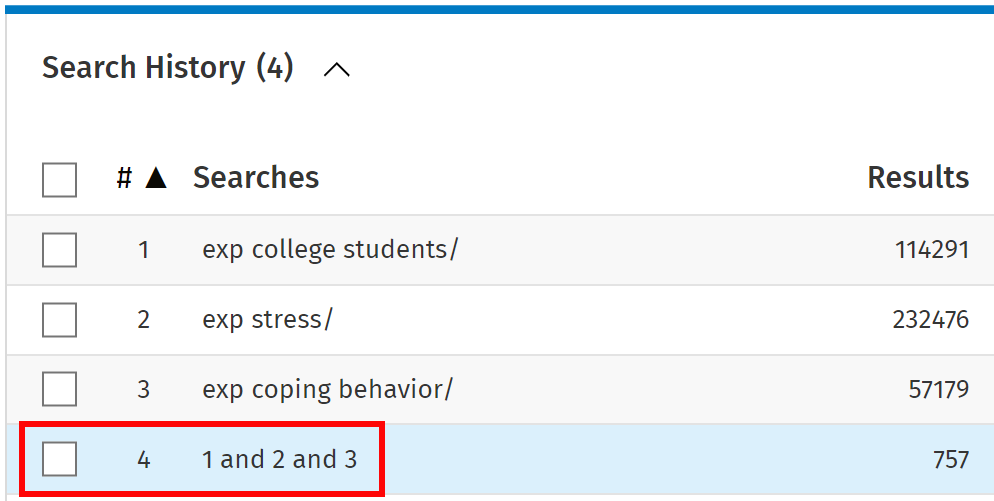
Revising A Search
If you don’t find relevant articles the first time, try changing the way you search using the following tips.
Try Different Combinations of Subject Headings
For example, if I were researching treatments for aphasia in stroke patients and I got too many results, I could change one or more of my concepts to be more specific. In the example below, I tried searching for the speech therapy or language therapy instead of the much broader concept of treatment, and the results were more focused.
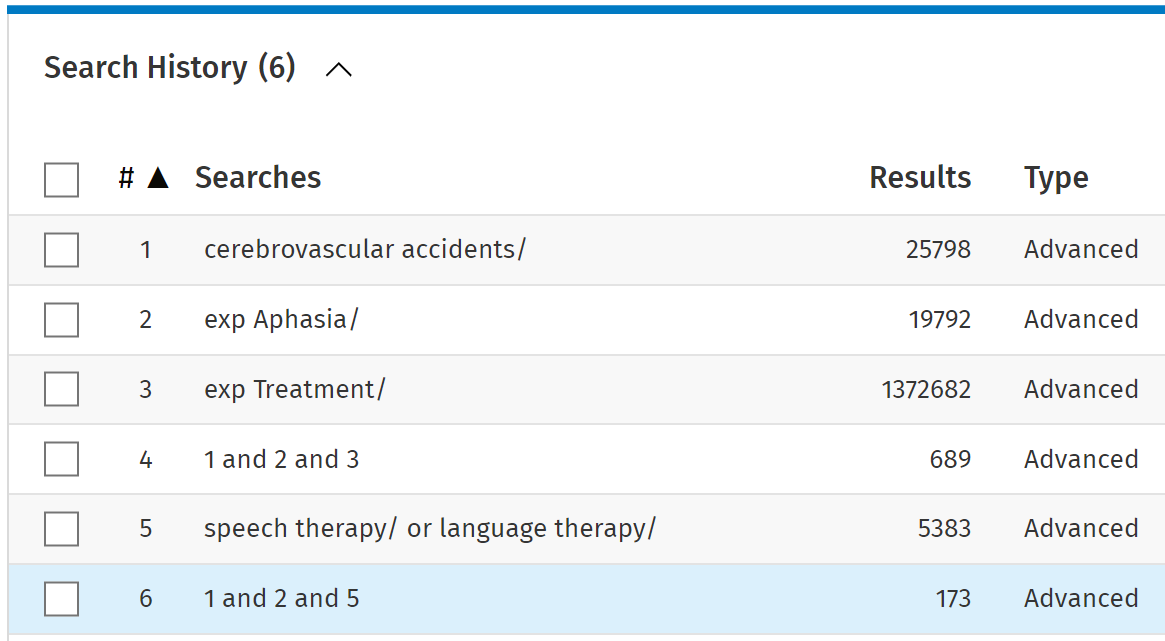
If you didn’t get enough results, you could add more synonyms and related terms, or use a broader term for one of your concepts. In the example below, Anxiety was added as a term related to stress. The searches for Stress (#2) and Anxiety (#5) were combined with an OR, with parentheses around them, so PsycINFO would find articles about either of those two concepts.
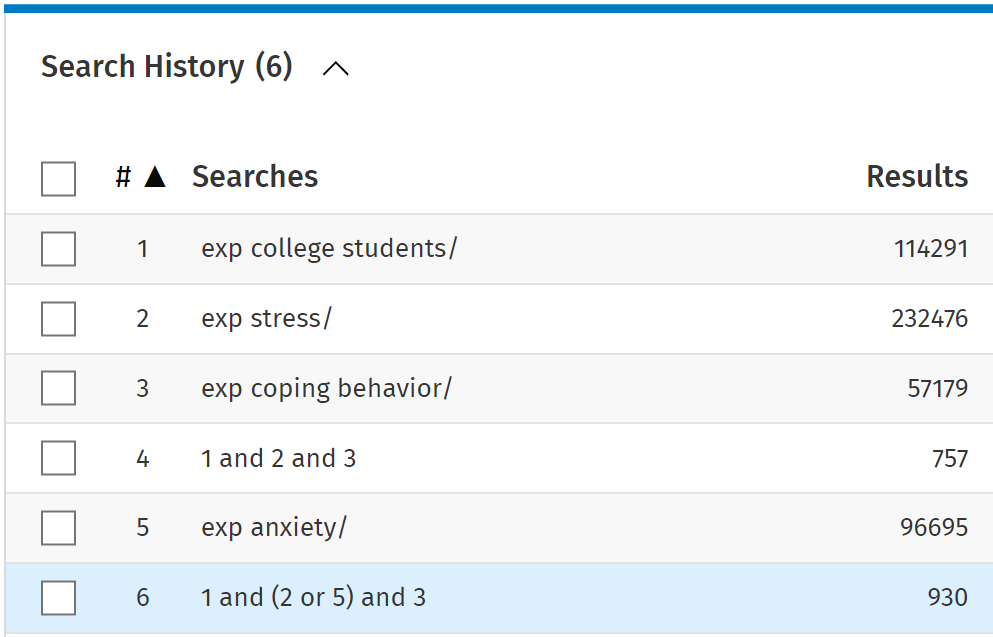
Use Relevant Results to Identify More Subject Headings
If I scroll through the results and notice one or two articles that seem relevant, I could click on their titles and look at the Subject Headings section of their records to see if there might be more I could add to my search.
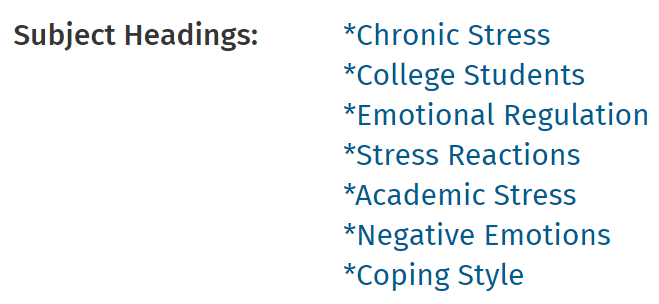
Change the Way You Use Explode and Focus
For example, the thesaurus page below for the Subject Heading Oral Communication shows that there are many narrower terms for that concept. If you exploded that term and found too many irrelevant results, you could try searching again without exploding it, and instead check off the boxes for the specific types of oral communication you want to research.
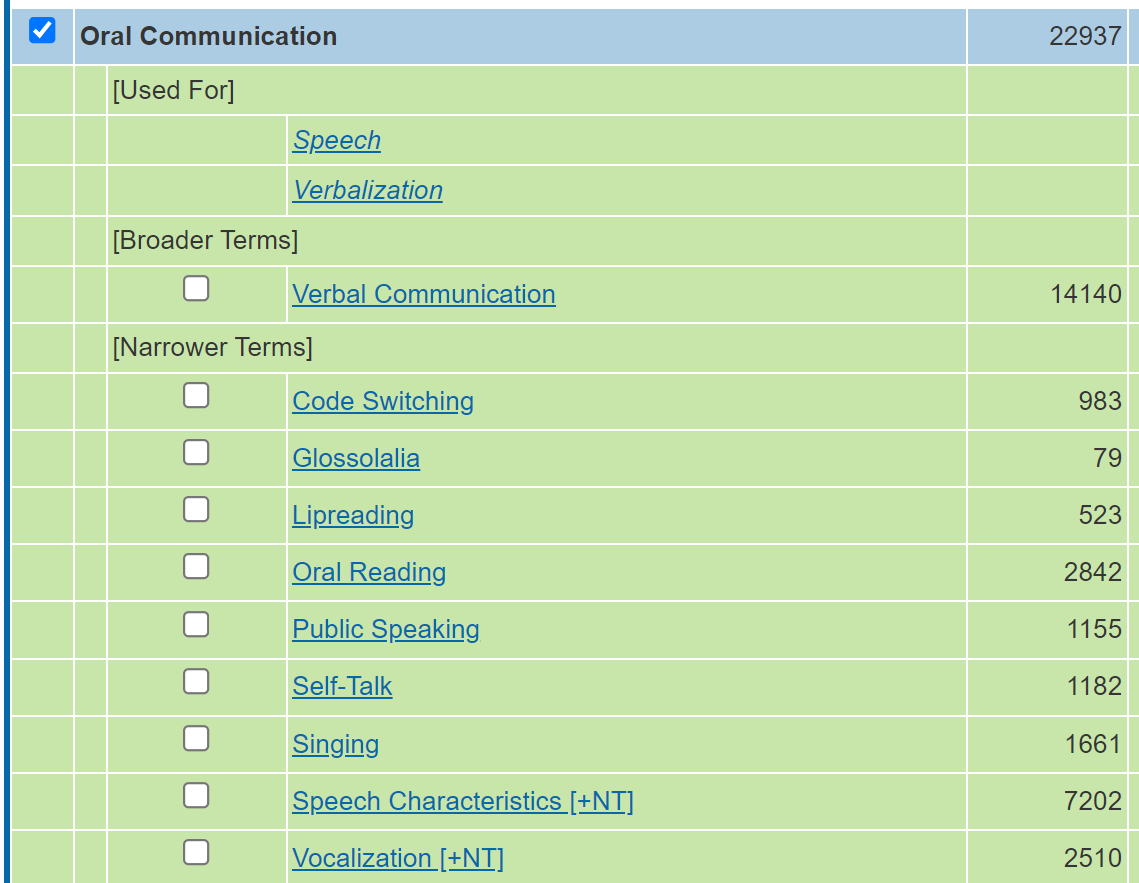
Video Demo: Combining Your Searches
Check Your Understanding
Imagine you are researching whether exposure therapy is an effective treatment for phobias. Use this example search history to answer the two questions below.
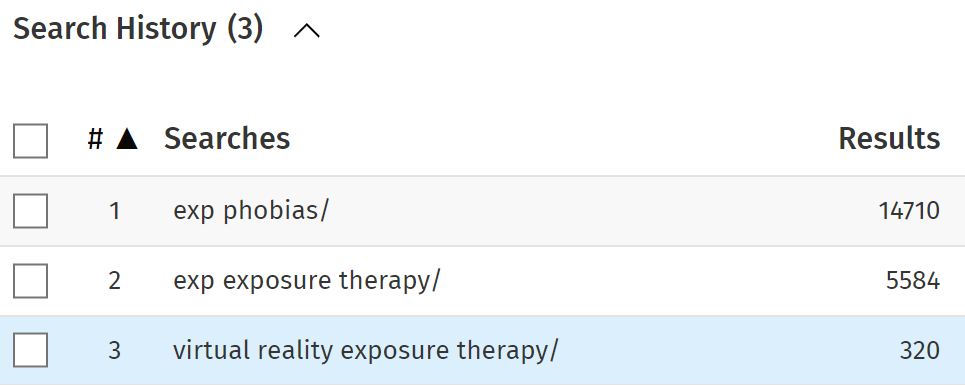
In the next section, we’ll explore how to add relevant limits to your search results.

